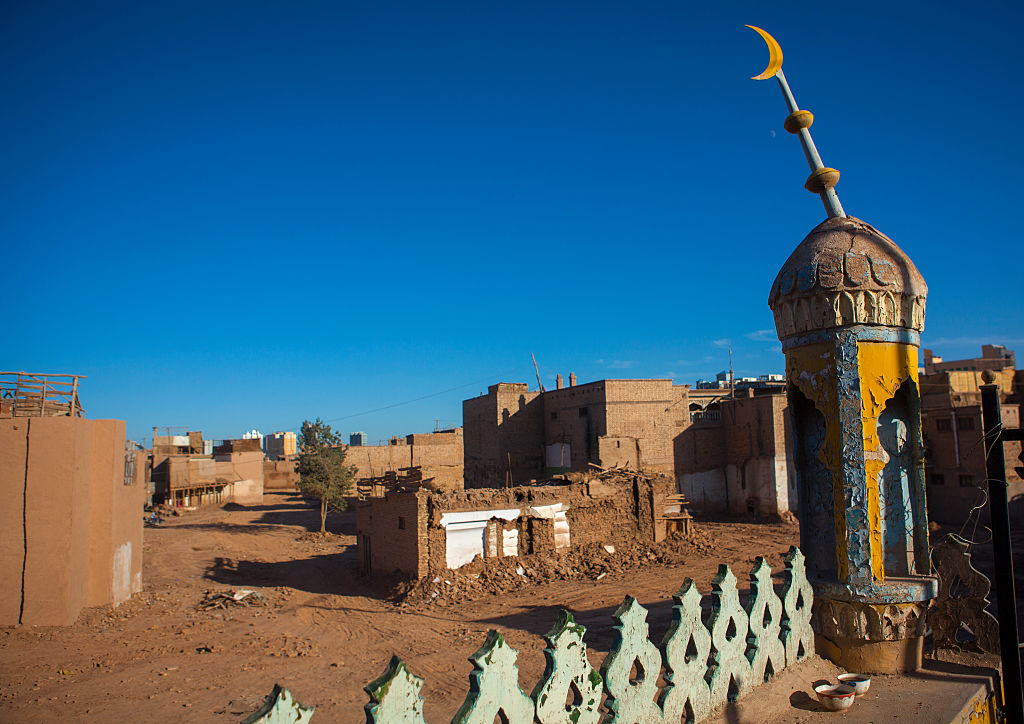
New research suggests that China may have undertaken large-scale destruction of Islamic sites in its western Xinjiang province, where Muslim minorities such as Uighurs live under severely repressive rule.
The Guardian and open-source journalism website Bellingcat used satellite imagery to examine 91 religious sites identified by people who used to live in the northwestern province, finding that 31 mosques and two major shrines showed significant structural damage between 2016 and 2018.
Of those, 15 structures were “completely or almost completely razed.” Others had defining features like domes or minarets removed. Nine other buildings used as mosques that did not have obvious mosque-like features were also destroyed, according to the Guardian.
The Imam Asim shrine, an important pilgrimage site for Uighurs, and the Kargilik Mosque, one of the largest mosques in the area, were among the buildings destroyed, according to the investigation. The Yutian Aitika mosque near Hotan, a large mosque dating back to the year 1200 where locals gathered for religious holidays, is also reportedly among those demolished.
China faces increasing condemnation for its alleged persecution of Muslim minorities. The State Department estimates that between 800,000 to 2 million Turkic Muslims, including Uighurs, ethnic Kazakhs, Kyrgyz and others, are being held in what Beijing calls “re-education camps.” Others call them concentration camps.
U.S. officials have repeatedly denounced the practice. China has defended the detentions as a means of combatting terrorism, and has tried to pass the camps off as “vocational training” centers similar to “boarding schools.”
Read More: ‘The Chinese Government Is at War With Faith.’ U.S. Official Denounces Religious Crackdown in China
Some experts and former residents believe the Chinese government is destroying religious buildings in a further attempt to wipe out Islamic religious identity in China.
“If the current generation, you take away their parents and on the other hand you destroy the cultural heritage that reminds them of their origin… when they grow up, this will be foreign to them,” said a former resident of Hotan, according to the Guardian.
More Must-Reads From TIME
- The 100 Most Influential People of 2024
- Coco Gauff Is Playing for Herself Now
- Scenes From Pro-Palestinian Encampments Across U.S. Universities
- 6 Compliments That Land Every Time
- If You're Dating Right Now , You're Brave: Column
- The AI That Could Heal a Divided Internet
- Fallout Is a Brilliant Model for the Future of Video Game Adaptations
- Want Weekly Recs on What to Watch, Read, and More? Sign Up for Worth Your Time
Write to Amy Gunia at amy.gunia@time.com